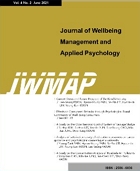- 권한신청
- E-ISSN2586-6036
- KCI
A Study on the Optimal Method of Eco-Friendly Recycling through the Comparative Analysis of the Quantitative Calculation and Scope of Recycling
Eun-gyu LEE (Department of Environment Health & Safety, Eulji University)
Chul-hyun NAM (Department of Environment Health & Safety, Eulji University)
Kang-hyuk LEE (Department of Environment Health & Safety, Eulji University)
Woo-Taeg KWON (Department of Environmental Health & Safety, Eulji University)
Hee-Sang YU (Unionenv. CO. LTD.)
Abstract
Purpose: The purpose of this study is to present an efficient emission reduction ratio of plastic to reduce carbon dioxide, the main cause of greenhouse gases. Research design, data and methodology: This study calculated the absolute value of carbon dioxide by setting an equation through the emission coefficient using the US EPA's WARM model. Results: In the recycling ratio of 70%, it was found that the energy recovery ratio was 15.6%, which was the energy recovery ratio without generating carbon dioxide. When carbon dioxide is generated by changing plastic waste emissions, optimal efficiency is achieved by reducing emissions by 10% to 30% of energy recovery ratio, 20% to 50% of energy recovery ratio, and 30% to 80% or more of energy recovery ratio. Conclusions: The recycling rate should be set at a minimum of 70%, so that a carbon dioxide-free energy recovery rate could be obtained during the recycling process, supporting an eco-friendly basis for environmental policies aimed at this rate. In addition, it was possible to suggest that it is essential to reduce emissions by at least 30% for eco-friendly recycling measures that can achieve both economic and environmental feasibility in the energy recovery process through incineration during recycling in Korea.
- keywords
- Climate change problem, Recycling, Carbon dioxide
- 다운로드 수
- 조회수
- 0KCI 피인용수
- 0WOS 피인용수















